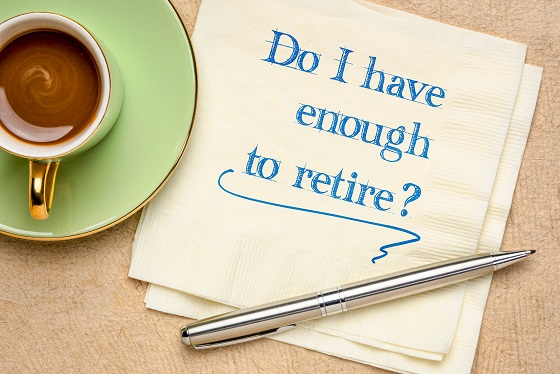So they have done it… the big seven US stocks have accounted for 75% of the gains of the whole US market this year, powered higher by Nvidia’s stunning results last Wednesday week. The biggest 10% count for 75% of the value of the whole market, the highest since the 1930s. That’s higher that the value of all ‘TMT’ just before the Dotcom bubble burst (72%). The big five count for 25% of the world’s stocks too.
Reasons for the big seven surge include: Nvidia (from a ‘mere’ $100billion not long ago) is now the third $2trillion company. The flows of money are unrelenting, including via ‘passives’ which just buy stuff because it ‘is there’. For ourselves, whilst in the face of ‘this’ it might seem awfully boring but we are more comfortable holding other assets which typically give us a solid income and are not so far away from the realities of the values of the businesses, as opposed to being priced on multiples of say ‘100 times’ future earnings’ expectations.
What investors don’t appreciate is that, say (not as a recommendation) Lloyds Banking could double in value from here and double again and still not be expensive on historic grounds at all and meantime investors buying today can enjoy a dividend income of circa 6%pa. Apple (‘valued’ at the equivalent of all the UK stockmarket) could halve, and halve again and realistically still be ‘expensive’ on historic criteria and dividends would not have been worth writing-home about.
Does Warren Buffett know something, as he has trimmed his stake slightly, though it is still a major asset in the Berkshire Hathaway pot. Or maybe I’d prefer a stalwart like ‘blue chip’ Reckitt Benckiser (which we don’t own – yet(?)) which has just slumped to its lowest since May 2014 on weak fourth quarter sales.
Well, Japan has finally done it. After 34 years the Nikkei Dow index has finally broached the level first seen in 1989. However, what a great buy if you invested in January 2009 when it had fallen almost 80% as it has rebounded almost five-fold.
Are there any lessons for the US market and the big seven situation presently? Remember that human emotion and hype drive prices in the short-term, both upwards and downwards. Reality trails some way behind. The sharper the ascent or descent the greater the likelihood of a similar correction either up or down, based on the collective human emotions unleashed at the time. Just numbers (mere superstition I know) but the Dow Jones has now exceeded the Nikkei Dow’s latest ‘number’ too.
Taxing business

So we are told that 11.6million Self-Assessment returns were filed by 31 January, many at the last minute (remember some must file more than one, eg partnerships, etc). However, 1.1million were not done in time and likely to lead to penalties and interest on unpaid tax. Penalties escalate too, the later the filing.
It is in some ways a simpler process now but also more complicated. More people fall into the regime of ‘must’ file Returns. After 5 April, even more will fall foul – with higher State Pensions, static Personal Allowances and savagely cut allowances on savings, dividends and Capital Gains and that’s all before a possible change of government. It is your duty to report taxable income – rents on properties, business income and so on. If you don’t, then the Taxman will catch-up with you and then penalties apply for unfiled Returns and unpaid tax. You can be penalised too for not informing HMRC of a new business as well.
This means two things primarily. The first is USE YOUR ANNUAL ALLOWANCES (eg Market ISAs and Pension Contributions – the latter even for the retired up till age 75) and don’t pull funds out of Personal Pensions unless you have spent everything else first… The second is, if you need professional help then engage a fair and competitively priced firm like ourselves and in advance of the situation, not scrabbling about last minute where the stresses and strains don’t help anyone. Having us on side can be worth its weight to relieve the stresses and tensions alone and of course, we look into everything for you too!
Salary-related pension transfer business

Only 23% of advisers have retained the ability of assessing pension transfer business apparently and we have there qualified staff to be able to guide and advise.
However, it is now much harder, as with higher interest rates, transfer values have plummeted and one of the key variables has disappeared – the giant value of transfer sums for ‘fixed’ benefits. Of course that must never be the only reason but some colossal amounts were available to those with deferred benefits from previous professions and once taken, those pots become available to the individuals’ estates for whatever purpose they want – such as inheritance for example.
There are and were many who could not transfer at all – such as those in the Pension Protection Fund and most Public Sector schemes. For the former (eg the British Steel cases who were not ‘duped’ by inadequate and potentially bad advice) that option has now gone and in many cases, it would have been absolutely right for them to have transferred. For a simple example, a life-impaired single person living with someone who did not qualify for partners’ benefits but there are many scenarios where the ‘blunt’ scheme is not the best – but now they have no choice.
Sadly we are already seeing plenty of cases where our reaction to their financial circumstances is ‘if only they had contacted us a couple of years ago’. The prime beneficiaries of not transferring at those ludicrous rates are the schemes themselves and hence the sponsoring employers whose contributions have been able to stop totally in some instances. One client had a transfer value of £180,000 eighteen months ago – now just over £60,000 – the most extreme example we have seen to date.
Good news, bad news
 Well, Currys seems to be in play with the shares rising 35% on bid interest – still ridiculously cheap and I wonder if Mike Ashley of Sports Direct will sit back and do nothing too – he was stake-building. It’s a holding we have had for a long time and losing on many, nibbling-away the cheaper they became but the rise will be welcome even if the company is worth significantly more than the present paltry levels.
Well, Currys seems to be in play with the shares rising 35% on bid interest – still ridiculously cheap and I wonder if Mike Ashley of Sports Direct will sit back and do nothing too – he was stake-building. It’s a holding we have had for a long time and losing on many, nibbling-away the cheaper they became but the rise will be welcome even if the company is worth significantly more than the present paltry levels.
Meantime, Hargreaves Lansdown slips on disappointing results, no doubt keeping the short sellers happy for now. And what is happening at Esken? The main lender for Southend Airport has called-in its loan early and this may result in the lender acquiring the Airport ‘on the cheap’ and Esken (which came out of Stobart) having nothing left – as the share price now reflects. Finally, Direct Line has also jumped by over a quarter on a prospective bid, which would be almost 150% of its prior price – there really is such great value in the UK market presently.
Abrdn Property Income has another bid from another REIT – an interesting development and Custodian REIT rises on relief! I fear that without cash on the table, wind-up is likely to be preferred to give shareholders the best outcome, even if that takes a while. Regional REIT declares its dividend and encouraging news on property disposals and will announce refinancing plans for the £50million retail bond later. If sustained, the yield to investors is daft (remembering the rules about distribution of profits within such a vehicle etc)!
We almost sold our Wincanton but our price limit wasn’t seen and out pops a far higher offer (38% more) … so we shouldn’t be unhappy. However, it is now time perhaps to take the cash and reinvest into some compellingly-valued assets instead. Of course we have been trimming our Rolls Royce before recent even higher levels, leaving a little on the table for the next person, as the adage goes, but we mustn’t complain nor try to be too greedy. When Renewi had a bid we didn’t sell and the bid failed, so the shares fell back again so it is not always easy to do the ‘right’ thing.
How green are we?
 I know we are green but we encourage and support myriad delivery firms all coming to the same addresses with small parcels. We destroy old infrastructure and equipment as it costs too much to be repaired and maintained and buy new with little regard for the carbon footprint of the replacement.
I know we are green but we encourage and support myriad delivery firms all coming to the same addresses with small parcels. We destroy old infrastructure and equipment as it costs too much to be repaired and maintained and buy new with little regard for the carbon footprint of the replacement.
Some farmers are now burning one of the best natural materials going – wool – because the price to farmers is as low as 26p a kilo, versus the equivalent of £14 in the 1950s (and the cost of transporting it to the local depot). We have to become cleverer and with less ‘political correctness’ about what we do to save our environment and stop ignoring these real issues too. Putting things in the right recycling receptacle isn’t everything, either.
St James’s Place

SJP shares plummet as £431million provision is made against potential over-charging or charging for an ongoing service which has not been evidenced satisfactorily. The dividend has been cut and there are fears the balance sheet may need new capital. This sort of provision suggests a major issue and the claims’ management entities have been pouncing already (the FCA has gone public to say ‘don’t use them’ (ie CMCs)).
Its customers will be wondering what implications there will be for them – possible refunds of any excessive charges since they started with the firm and wondering if their advisers start to jump ship too to find a new, stable home without the taint of these legacy issues (rewards which they have enjoyed sharing as well, don’t forget?).
My best wishes
Philip J Milton DipFS CFPCM Chartered MCSI FPFS FCIB
Chartered Wealth Manager
Fellow Of The Personal Finance Society, Fellow Of The Chartered Institute Of Bankers





